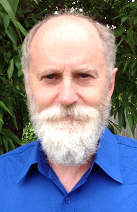Strategic Goals to Halt the Genocide in Gaza and Liberate Palestine
Introduction
In an urgent plea echoing across global headlines, advocates warn that what’s unfolding in Gaza may well be genocide, fueled by deprivation, starvation, and collective punishment—and propelled by expansionist ideology that threatens the heart of Palestine. This blog begins with a clear-eyed question: Is Gaza a genocide, and how can strategic goals to halt this atrocity, demanding arms embargo, sanctions, and stronger accountability, help liberate Palestine?
Behind the humanitarian alarm bells—starvation as weapon, siege of Gaza, water infrastructure, electricity blackout, mass displacement, and the destruction of hospitals, shelters, and maternity wards—lies legal reality. These actions may constitute ethnic cleansing, crimes against humanity, and potential acts of genocide under the Genocide Convention. When destabilizing Gaza’s health system, targeting journalists and maternity wards, and blocking humanitarian corridors, authorities risk legal exposure via ICJ genocide case, ICC arrest warrants, and universal jurisdiction prosecution.
Yet hope remains. International efforts—from interventions by UN Special Rapporteur Francesca Albanese, the ICJ provisional measures, to South Africa’s genocide case—show that the international community can invoke responsibility to protect, impose an arms embargo, suspend trade, and apply targeted sanctions. Civil society pressure—from boycott, divestment, sanctions, to tech companies’ complicity being exposed—fuels momentum. Meanwhile, solidarity movements—Black solidarity with Palestinians, campus protests, global outrage—underscore shared resistance against dehumanization, misinformation, and media bias.
This blog post isn’t just about diagnosing the crisis—it’s about offering a roadmap. From preserving satellite imagery, witness testimonies, and mass grave documentation, to advocating for ceasefire resolution, humanitarian corridors, and safe zones, we'll explore strategic goals anchored in law, narrative, and action. Recognizing the difference between the ICJ and ICC, understanding genocidal rhetoric, dismantling the siege, and leveraging international law—these are the keys to preventing genocide, defending the right of return, and enabling true liberation.
In an urgent global effort to halt the Gaza genocide and achieve the liberation of Palestine, a multifaceted strategic approach is being actively pursued. At its core, the situation in the Gaza Strip is increasingly recognized as a profound humanitarian crisis, marked by widespread starvation and an impending famine, further exacerbated by the ongoing blockade and tragic attacks on aid convoys. The international community, including organizations like the UNRWA and the World Health Organization (WHO), is gravely concerned.
Legal and political analyses are paramount, with the International Court of Justice (ICJ) actively deliberating on the South Africa case against Israel, meticulously examining evidence of genocidal intent and potential breaches of the Genocide Convention. Broader legal frameworks, including those addressing war crimes, crimes against humanity, and the long-standing issues of settler colonialism and apartheid, are central to these discussions.
In response, a powerful wave of social and media-related activism has emerged. Pro-Palestine protests and calls for Gaza solidarity are sweeping across the globe, amplifying the BDS movement as a form of resistance. Activists are actively using various Gaza hashtags, such as #FreePalestine and #GazaUnderAttack, to disseminate information and mobilize support.
Stay with us as we dive deeper into legal instruments, humanitarian strategies, global alliances, and grassroots movements that can—and must—halt the genocide in Gaza and pave the path to Palestine’s freedom.
Dive in and discover more from the following article by Robert J. Burrowes, Ph.D. – TRANSCEND Media Service
 Robert Burrowes, Ph.D. is a member of the TRANSCEND Network for Peace Development Environment and has a lifetime commitment to understanding and ending human violence. He was a member of the Gulf Peace Team in 1991. Robert has done extensive research since 1966 in an effort to understand why human beings are violent and has been a nonviolent activist since 1981. He is the author of Why Violence?
Robert Burrowes, Ph.D. is a member of the TRANSCEND Network for Peace Development Environment and has a lifetime commitment to understanding and ending human violence. He was a member of the Gulf Peace Team in 1991. Robert has done extensive research since 1966 in an effort to understand why human beings are violent and has been a nonviolent activist since 1981. He is the author of Why Violence?
Email: flametree@riseup.net



